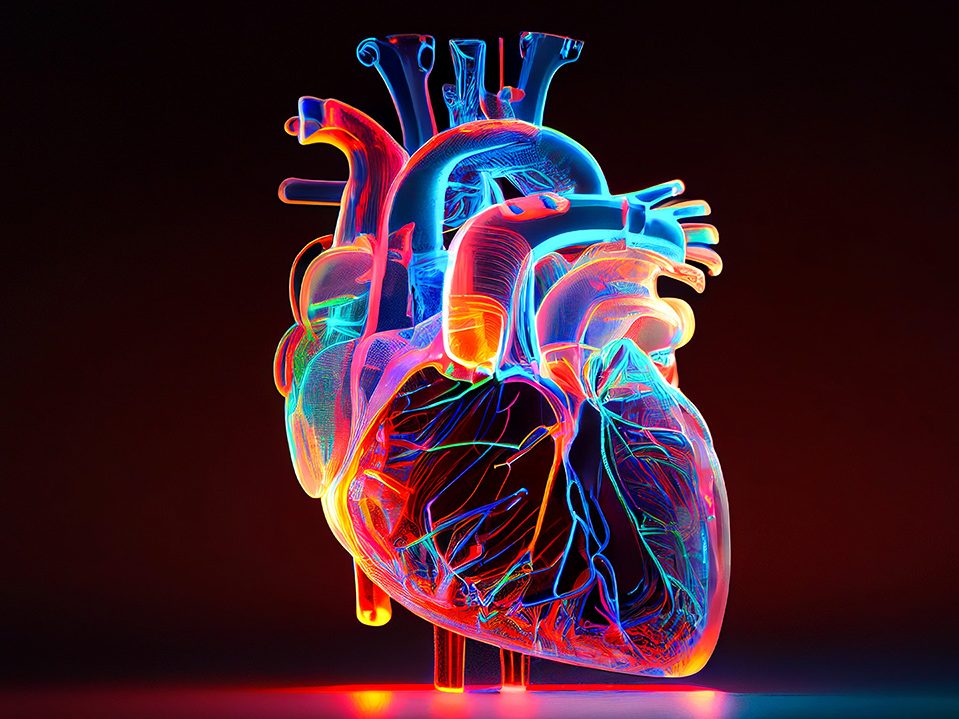Cardiac Ischemia Diagnosis – Myocardial Ischemia

Cardiac ischemia, also known as ischemic heart disease, is a condition where the heart muscle is deprived of blood flow due to clogged arteries. The U.S. has the second-highest mortality rate for ischemic heart disease, which makes up more than 44% of the deaths related to cardiovascular issues.
According to the CDC, 2021 saw about 695,000 deaths related to heart disease, which was actually down from 2019. However, it’s still too high, and in many cases, early diagnosis of myocardial ischemia, along with the right diagnostic approaches, can make all the difference.
What Is Cardiac Ischemia?
Cardiac ischemia may cause chest pain when you strain the body, such as when you are under excessive stress or exercising. Some people may also experience arm pain and shortness of breath during exercise or stressful periods. Other related symptoms may or may not be present.
Recognizing the Signs of Ischemia
Someone experiencing chest pains and symptoms like those listed here should seek immediate medical attention. Getting treated quickly is important, but so is getting the right heart treatment. That will involve taking an active role in learning about this condition and the different heart treatment options based on your circumstances.
Understanding Tests and Techniques
Many people wonder, what is the diagnostic test for cardiac ischemia? The short answer is that there isn’t just one “test” that can be done to determine if you have ischemic heart disease. Rather, a doctor or cardiologist will perform a series of tests based on things like:
● Medical history of a patient
● Current presentation
● Potential risk factors
● Overall health
● Lifestyle
Before the myocardial ischemia tests can begin, the doctor will need to perform a full evaluation. This may include things like:
● Questions about your symptoms, current state of health, personal history, family history, lifestyle, etc.
● Blood tests to check cholesterol levels, kidney function, blood sugar, and other important functions and levels.
● ECG or EKG tests (resting)
● Stress tests
● Imaging tests
● Angiography
All of these elements will help them determine the best course of action to get an accurate myocardial ischemia diagnosis, and then from there to create an effective treatment plan for a patient.
What Are the Diagnostic Methods for Ischemic Syndrome?
There is a long list of tests and diagnostic tools that can be used to determine all manner of heart disease conditions. However, when people ask what is the most widely used test for both diagnosis of ischemic heart disease and estimation of risk and its prognosis, the answer is simple.
The Role of Stress Testing in Ischemia Diagnosis
Stress testing is one of the most common methods that doctors use to assess and diagnose heart conditions like ischemic heart disease. There are multiple ways that this test can be performed, but the goal is the same: put the heart under as much stress as physically (or chemically) possible and see what happens.
ECG exercise testing is most common, but some people may not be capable of performing hard physical exercise. In that case, chemicals can be used to put the heart under stress and try to get a glimpse of what’s going on. This can also be paired with various imaging and testing methods to get a full image of the heart and blood vessels and how they are working (or aren’t working, in some cases).
Combining Imaging Tests with Stress Testing for Ischemia
Imaging tests and cardiac catheterization can also be effective in diagnosing cardiac ischemia and related conditions, but they are usually prefaced by the stress test because it’s the most effective tool to point people in the right direction.
Creating a Treatment Plan
Because every condition is different, the diagnosis and evaluation of your specific type and level of heart disease will help define the best course of treatment. Based on the results of the tests performed, doctors could recommend things like:
● Further, more invasive testing
● Cardiac rehabilitation, including medication management and lifestyle changes
● Non-invasive therapies
● Surgeries to remove blockages or improve blood flow
Tailoring Treatment to the Severity of Ischemia
Your doctor will work with you to come up with a treatment plan that provides the best outcome based on what type of cardiac ischemia you’re dealing with and how severe it is.
How to Improve Your Health and Reduce Risk
Many cases of ischemic heart disease can be prevented or at least put off if people are more aware of their lifestyle and choices they make. Eating healthy, maintaining a good body weight, and exercising regularly are all important to heart health. It’s also important to reduce stress, avoid smoking and alcohol, and take all prescribed medications to assist with cardiac ischemia and other conditions.
Proactive Lifestyle Changes for Heart Health
With the right testing and early diagnosis, cardiac ischemia doesn’t have to be a death sentence. Your doctor will help you make the best decisions for your care moving forward.
CVRTI
At the Nora Eccles Harrison Cardiovascular Research and Training Institute (CVRTI), many of our Investigators are working on improving diagnostics and therapeutics to better treat cardiac ischemia. The MacLeod Lab is improving EKG detection of myocardial ischemia. The Guo Lab is understanding the process of myocardial ischemia and, using stem cells, is exploring the application of anti-inflammatory agents against it. The Donato and Lesniewski Labs are experts in vascular biology and what happens with our coronary arteries as we age. Dr. Craig Selzman is a surgeon and performs bypass and heart transplant surgeries and his lab is exploring therapeutics to lessen the effect of acute ischemia. If heart failure develops after an ischemic event, the Dosdall and Shaw Laboratories are developing therapeutics against ischemic heart failure. Collectively CVRTI Investigators understand the impact of cardiac ischemia and are leading the fight to develop new and better ways to treat it.


